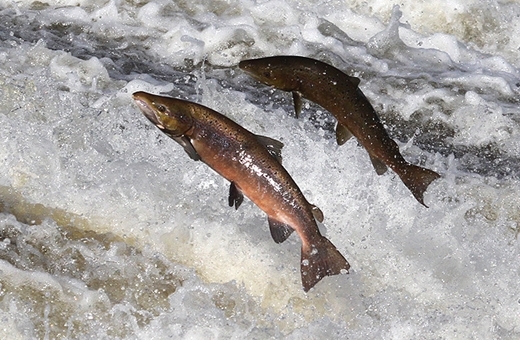
There is stark news for the world’s fish in the latest species reassessment by the IUCN Red List of Threatened Species. Published on 11 December, the report shows that nearly a quarter of the world’s freshwater fish are at risk of extinction, with the main UK population of Atlantic salmon reclassified as endangered and global Atlantic salmon populations reclassified from least concern to near threatened.
Dylan Roberts, Head of Fisheries at the GWCT, commented that “successive governments have done little to improve and enforce regulations to protect water quality in our rivers from agricultural and sewage pollution, these are the Atlantic salmon’s nursery streams and also to adequately protect them at sea. The demise of the wild Atlantic salmon is a sad reflection of how poorly government prioritise the environment.“
IUCN notes that “Atlantic salmon are now restricted to a small portion of the rivers they inhabited a century ago across northern Europe and North America, due to multiple threats over the course of their long-distance migrations between freshwater and marine habitats.”
Many of these threats have been highlighted by the GWCT’s Fisheries team. The EU-funded Samarch project, of which the GWCT was a lead partner, has collected evidence by studying salmon and sea trout on monitored rivers in Southern England and Northern France.
It has recorded changes in the age and growth rates of salmon at sea, updated information on the sex ratios of wild Atlantic salmon, developed a new method for estimating salmon exploitation rates by anglers, improved salmon lifecycle models and developed a genetic baseline to identify the origin of sea trout caught at sea around the Channel area, as well as map areas that are important for sea trout survival, such as migratory routes and feeding hotspots.
It is hoped that these findings, in addition to the continuation of 50 years of monitoring salmon on the Frome, will reverse the future of threatened species. You can watch a short video on the history of our monitoring here: